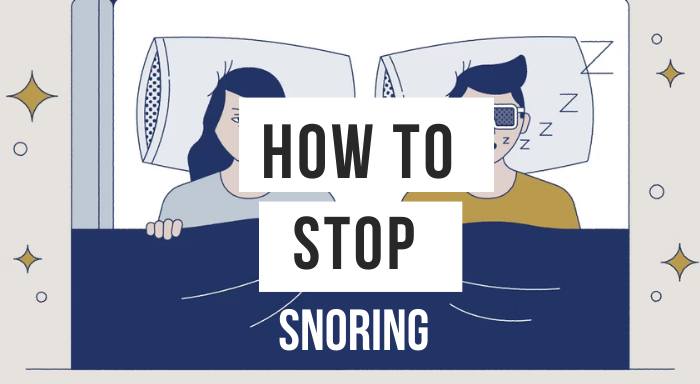How To Stop Leg Cramps Immediately

Muscle cramps can be a real pain, literally. Whether they strike during exercise or wake you up in the middle of the night, leg pain can be incredibly painful. But don’t panic, there are ways how to Stop Leg Cramps them quickly with some self-care measures.
The best thing you can do when experiencing leg pain is to gently stretch the affected muscles. This can help relieve the pain and prevent it from coming back. You can try gently massaging the area or using heat or ice packs to help relax the muscles.
Another important step is to make sure you stay well hydrated. Dehydration can often lead to muscle aches, so be sure to drink plenty of fluids throughout the day. It’s also important to make sure you’re getting enough electrolytes, such as potassium and magnesium, which can help prevent cramps.
If leg pain is a frequent occurrence for you, it may be worth discussing with your health care provider. They can help determine if there is an underlying health condition causing the pain and provide recommendations for treatment. They may also recommend some stretching exercises or physical therapy to help prevent future pain.
Lifestyle and Home Remedies
When you feel muscle pain coming on, there are things you can do at home to help ease the pain. If you’re experiencing calf pain, try standing up and putting your weight on the affected leg. Gently stretch your calf muscles by turning your foot toward your face. You can also try massaging the area or using a towel or heating pad to apply heat to the muscles.
For leg pain in the thighs or buttocks, try sitting in a chair and gently stretching the affected muscles. You can also try applying cold packs or ice to help reduce inflammation and ease pain. Taking a warm bath or shower can also relax muscles and relieve pain.
In addition to these home remedies, it’s important to take care of your muscles by staying active and maintaining a healthy weight. Regular exercise can help prevent muscle soreness by keeping your muscles strong and flexible. Be sure to stretch before and after exercise to help prevent soreness.
If you continue to experience recurring muscle pain despite trying these self-care measures, it may be helpful to talk to your healthcare provider. They can help determine if there is an underlying health condition contributing to your pain and provide additional treatment options. In some cases, they may prescribe medications or muscle relaxants to help ease the pain.
If you continue to experience recurring muscle pain despite trying these self-care measures, it may be helpful to talk to your healthcare provider. They can help determine if there is an underlying health condition contributing to your pain and provide additional treatment options. In some cases, they may prescribe medications or muscle relaxants to help ease the pain.
Alternative Medicine
If you’re looking for alternative ways to prevent leg pain, consider adding a vitamin B complex supplement to your daily routine. These vitamins can help support muscle health and reduce the chance of experiencing cramps. Be sure to talk to your healthcare provider before starting any new supplements to make sure they are safe for you.
Preparing for your Appointment
So you’re dealing with those pesky muscle pains and you’re ready to seek some professional help. Before meeting with your healthcare provider, take some time to gather information about your symptoms. Be prepared to discuss any self-care measures you’ve tried and how they’ve worked (or not) for you. This will help your provider better understand your situation and create a plan.
What you can do
So, you are experiencing those pesky leg pains and you are looking for ways to find relief. First, it is important that you pay attention to the symptoms that you may experience when the pain occurs. Note when they occur, how long they last, and any factors that may trigger them.
You may experience leg cramps for a variety of reasons, such as dehydration, vitamin deficiency, or muscle overuse. It’s important to make an appointment with your healthcare provider to discuss your symptoms and learn more about possible causes.
During your appointment, be prepared to provide information about any stressors or life changes you are experiencing, as well as your family medical history. Be sure to bring a list of any medications, vitamins, or supplements you are currently taking, including food. Your provider may ask you questions about your muscle pains, such as what triggers them and how often they occur.
Your health care provider may recommend tests to determine the underlying cause of your pain, such as blood tests to check for vitamin deficiencies or nerve tests to assess muscle function. A transmission study. Be sure to ask any questions you may have during your appointment to make sure you understand the causes behind your muscle pain and the best treatment options. By staying active and getting help from a health care provider, you can work to relieve leg pain and improve your overall muscle health.
What to Expect From your Doctor
When you visit your health care provider to discuss your leg cramps, you can expect them to ask you some questions about your symptoms. They may inquire about when the cramps occur, how long they last, and if anything seems to trigger them. Be sure to mention any changes in your exercise routine or any new activities that may be contributing to the cramps.
Your provider may also ask about any muscle weakness or numbness you may be experiencing, as well as any changes in your urine color or frequency. They may recommend certain exercises or stretches to help prevent cramps and discuss ways to alleviate symptoms when they do occur.
During your appointment, make sure to ask any questions you have about your cramps and how to manage them. Your health care provider is there to help guide you towards finding relief from your muscle cramps, so don’t be afraid to seek their advice and expertise. By working together, you can develop a plan to address your symptoms and improve your overall muscle health.
Your provider may suggest lifestyle changes, such as staying hydrated, maintaining a balanced diet rich in vitamins and minerals, and incorporating regular exercise into your routine. They may also recommend specific supplements or medications to help alleviate cr ramps. It’s important to follow their recommendations and keep track of any improvements or changes in your symptoms.
In some cases, leg cramps may be a sign of an underlying medical condition, such as peripheral artery disease or nerve damage. If your provider suspects that there may be a more serious cause for your cramping, they may recommend further testing or refer you to a specialist for additional evaluation.






